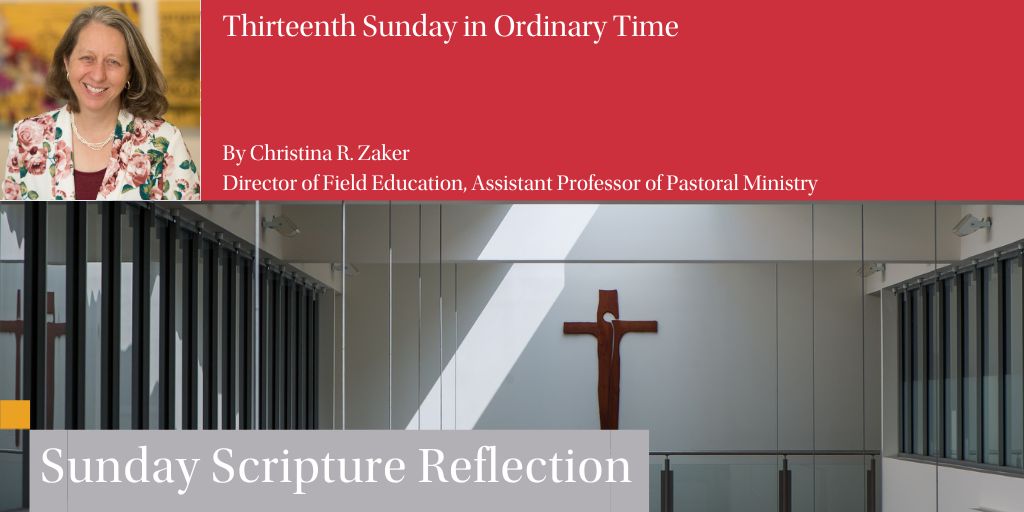

Readings:
Deuteronomy 30:10-14
Colossians 1:15-20
Luke 10:25-37
There are a lot of questions asked in the readings this week. We are probably familiar with the scholar of the law in today’s Gospel who asks in succession “Teacher, what must I do to inherit eternal life?” and then “and who is my neighbor?” which lead Jesus into telling the parable of the good Samaritan. But even Moses, in the reading from Deuteronomy, is noting that the people might be asking, “Who will go up in the sky… or cross the sea to tell us of it [the command] that we may carry it out.” They are all asking what they need to do to “return to the Lord, with all your heart and all your soul.” And Moses, you can almost feel his exasperation, responds, “It is already in your mouths and in your hearts; you have only to carry it out.”
I have a good friend who will say, “If you ask the question, you already know the answer.” Which is a reminder that perhaps my asking is simply a way of procrastinating or avoiding what I know needs to be done. With that in mind, the readings today showcase a bunch of folks who know what they need to do to, but they are asking questions to see if they actually need to follow through.
We can see that in today too. There is so much going on in the world that does not reflect the Peace of Christ, and yet we find ourselves mired in fear, or apathy, or procrastination when it comes to knowing what we need to do to align our actions and our prayers with God. To love God with all our heart, being, strength and mind is to put that love into action in how we respond to the cries of the world. If we are too busy to participate in a protest, too confused to read deeper into the various writings whether they are congressional drafts or papal encyclicals, too scared to use our voice to stand up for those on the margins, we might find ourselves asking, “can’t someone else be the good Samaritan? Can’t someone more holy be the prophet?”
Jesus continues to respond to our questions with a patient story trying to jar us out of our procrastination. The parable gives us an image of God’s abundant and unconditional love. The gift of compassionate healing and generous debt payment. Some of us might resonate with the traveler; being left for dead, stripped of all dignity wondering who among the powerful might pause and lend a hand. We might upon our healing even be totally surprised by the gift of the Samaritan (or Christ’s sacrifice) that our ways of helping others comes from a stance of gratitude. Perhaps some of us aspire to be like the good Samaritan and attempt to emulate that generosity in our own actions. But not all of us have the resilience of the traveler, nor the grace of the Samaritan, and so we ask our questions procrastinating on what lies in our hearts. We don’t necessarily want to align our actions with those who passed up the traveler. But sometimes our reasons for inaction seem just as justified as theirs. Sometimes in the face of a lot of need, we hope someone else steps up.
In the Gospel, Jesus also puts before us the image of the inn keeper. This is an additional image – not of God, but of someone asked to help; invited to be an active participant in the Reign of God. The Samaritan has begun the healing and left the inn keeper with instructions and an option to help. We do not know what the inn keeper does: Does he kick the man out because he has just made his Inn “unclean” or help to heal the man and keep the payment. Does he help to heal the man and refuse the payment from the Samaritan or charge him double in the end? The parable leaves it open ended, inviting each of us to consider our response to the cries of someone in need and the exemplar who embodies God’s unconditional love. We have to realize we are not asked to be God, we are simply being asked to help out. And it is in the act of caring that we embody God’s selfless gift.
Look around today. Where do you see the cries of someone in need? Where do you see exemplars who embody God’s unconditional love? The image of the inn keeper shows us there are lots of ways to lend a hand. Listen to your heart. How might you respond with gratitude for the gifts of blessings and abundant love? How might you respond with resilience, or collaboration, or peace making? These are the questions worth taking to prayer, these are the answers we are called to embody.
By Christina R. Zaker, Director of Field Education, Assistant Professor of Pastoral Ministry